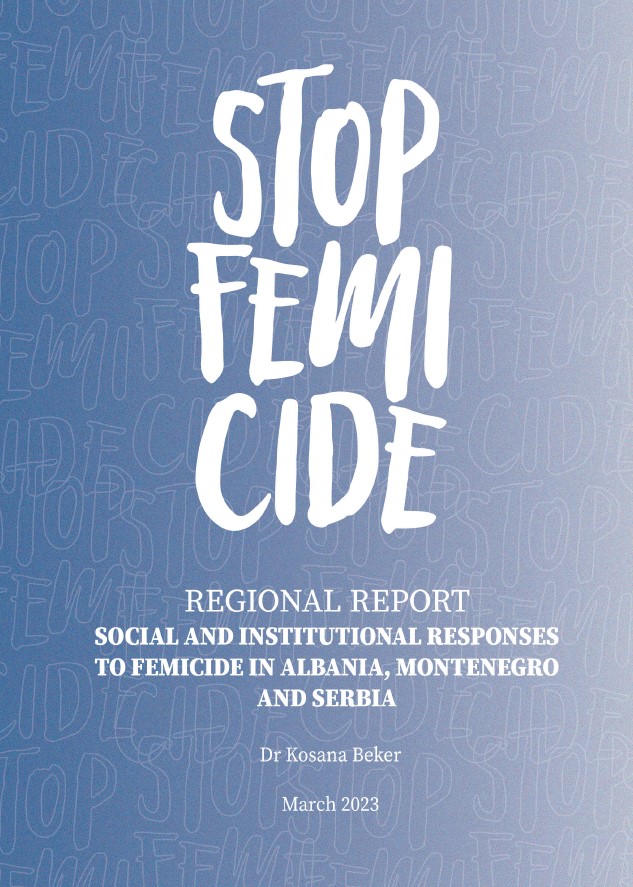
Social and institutional responses to femicide in Albania, Montenegro and Serbia

The regional report aims at understanding the characteristics, patterns, and causes of femicide – the most extreme manifestation of violence against women – in Albania, Montenegro and Serbia and setting forth recommendations for preventing femicide. The research methodology, developed from 2018 to 2021, was developed in Serbia and adapted to the national contexts of Albania and Montenegro. The methodology comprised desk research on the legal framework related to violence against women, including femicide; data collection on final court decisions in cases of gender-based killing of a woman by a man and for attempted murder of a woman by a man (regardless of the criminal act qualification according to the national criminal legislation) for the 2017-2020 period; an analysis of the court proceedings, profiles of perpetrators, information about the victims, prior reports of violence, qualification of the criminal act, and other aspects of the cases of femicides and attempted femicides; an in-depth analysis of selected court case files (case-studies); capacity assessments of institutions and professionals working on prevention of and protection from violence against women; interviews with convicted perpetrators; and an analysis of legislation and policies to improve and strengthen existing preventive measures. Use of the same research methodology allows for comparison among the three states.
The report presents a set of recommendations applicable to each country in order to improve the prevention of femicide within the local contexts as well as in the region as a whole. Such recommendations include, among others, the incrimination of femicide as a specific offense, which is necessary to classify all cases of femicide and thus reduce legal uncertainty and possible errors in the classification of the criminal offence and punishment of the perpetrators, as well as to inform statistics on the number of persons reported, accused and convicted of femicide. Also, national data collection on violence against women is not centralised, and each respective system (e.g., police, social protection, prosecution offices and courts) collects its own data, which often makes comparison impossible. Therefore, one of the recommendations is the establishment of a centralised national data collection system to enable better recording of cases of violence against women and domestic violence.
The report was developed by FemPlatz with the technical support of UN Women in the framework of the regional programme “Implementing Norms, Changing Minds,” funded by the European Union.